EUSA Winter Forum 2023

During the European Universities Winter Championships in Val di Zoldo, EUSA organized EUSA Winter Forum under the title Sustainable Winter Sport Events: The Future of Winter University Sports Events.
The Forum saw more than 60 participants, among them officials, athletes, EUSA Executive Committee members and other guests.
The aim of this event is to gather and work with the national federations, partners, volunteers, athletes and other supporters to create unique winter sports experiences that will minimize the festival's footprint in nature,educate and inspire as many people as possible to make sport events more sustainable in the future.
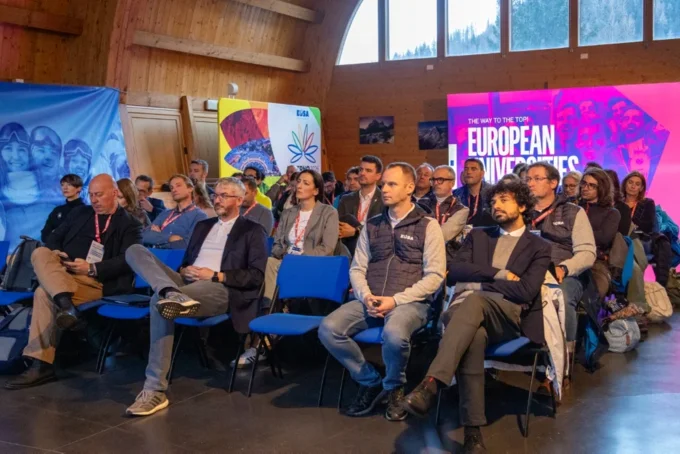
The event was moderated by Ms Sara Rozman, EUSA Education and Development Manager and was officially opened by Mr Haris Pavletic, EUSA 1st Vice President and Mr Massimo Zanotto, President of the Organizational Committee and CUS Venezia who both delivered welcome addresses.
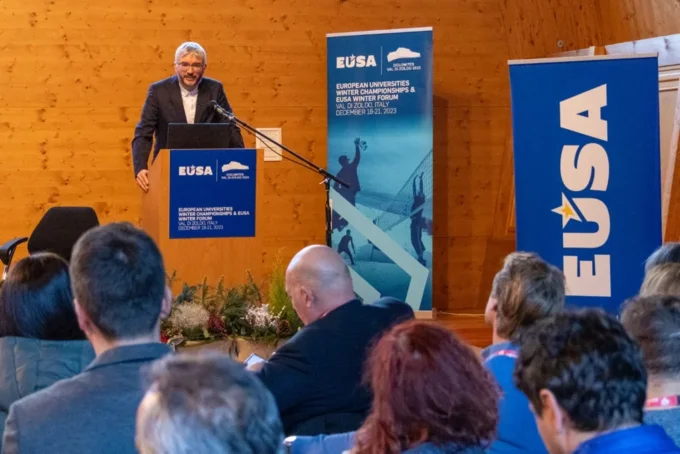
The Forum started with the opening remarks given by Mr Milan Zvan, EUSA Executive Committee Member and the Chair of EUSA Education Commission. Mr Zvan shared with the audience his perspectives on sustainability in sports, possible strategies and tools to combat the topic.
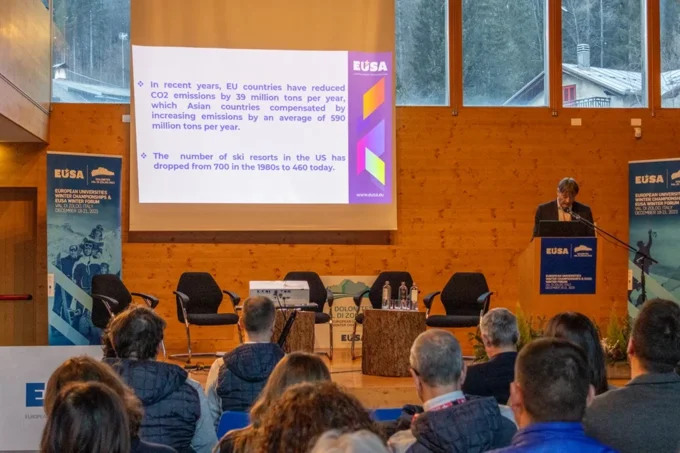
The keynote speech was given by Ms Susanna Sieff, Sustainability Director of the International Ski and Snowboard Federation. Ms Sieff’s keynote address focused mainly on the climate change impacts on sports, essential threats to outdoor sports, the influence of global warming, wrapped up with great portion of useful statistic data.
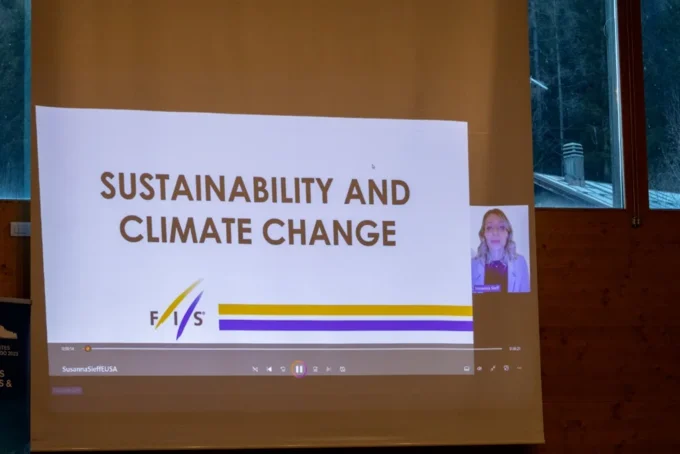
She stated that sport should serve as a platform to influence people, stakeholders, athletes and other people involved in participating and organizing sport events to practice and use more sustainable behaviours, solutions and to play sports a direct actor of change. At the end Ms Sieff also presented the sustainable action plan adopted by the International Ski and Snowboard Federation.
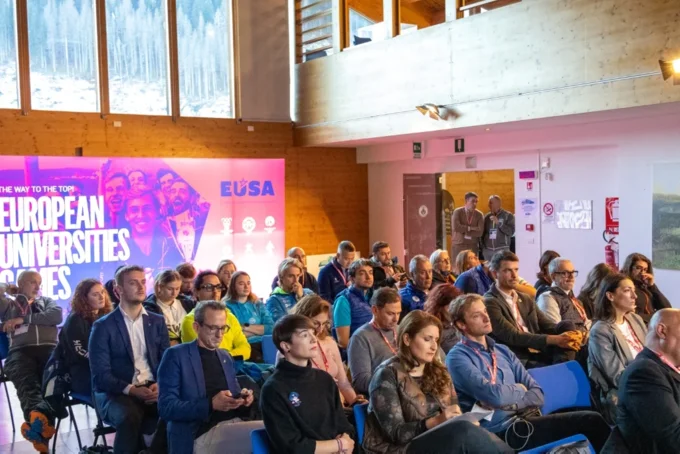
Next on the programme were presentations and round table discussion on the topic of meeting the challenges of winter university sport events. Ms Natasa Jankovic, the moderator, hosted the representatives of four National University Sports Federation: Ms Marina Tezriyska from Bulgaria, representing Association for University Sport “Akademik”, Mr Premys Dusek from Czech University Sports Association, Mr Massimo Zanotto from Italian University Sport Federation and Mr Andrzej Burzynski from University Sports Association of Poland.

The speakers presented their own national winter sports events and challenges they are facing. In the discussion that followed, Ms Jankovic focused on sustainability strategies put in practice, good practice examples and key factors of success, such as funding opportunities.
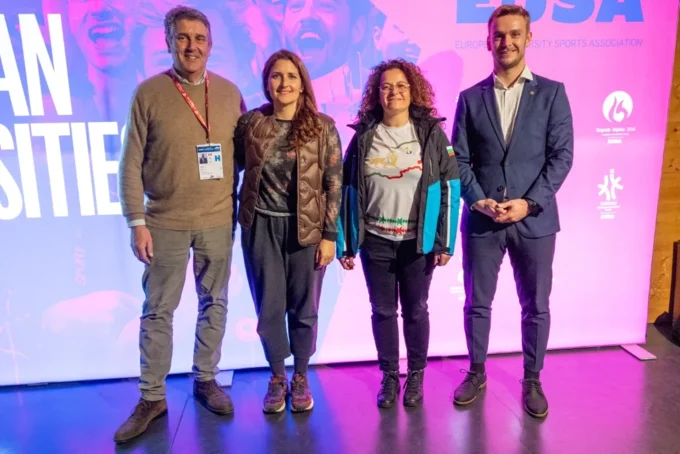
The second round table on legacy and sustainability of sport events included Mr Francis M. M. Cirianni, Director of the Winter World University Games Torino 2025, Mr Joerg Foerster representing the Summer World University Games Rhine-Ruhr 2025, Ms Mara Nemela, the Director of the Dolomites UNESCO World Heritage and Mr Daniel Horvath from the European Volleyball Confederation. The panel was moderated by Mr Andreas Csonka, EUSA Executive Committee Member.

The discussion mainly involved around the idea that sustainable practice, also for major sporting events, need to focus on supporting the health and vitality of the environment, people, the community and the economy.

During the discussion speakers shared few key points on organising sustainable sport events, underlining that it is necessary to build sustainable legacy for future generations, involve local communities into the organisation process of sport events, engage students and give them the opportunity to shape the future of the events as well as to educate and inform people on the topic of sustainability. Organising and adapting the sport events, as well as sharing different examples of tools and triggering the organisational committees with sustainable plans and strategies, was also one of the main recommendations given by the panellists.
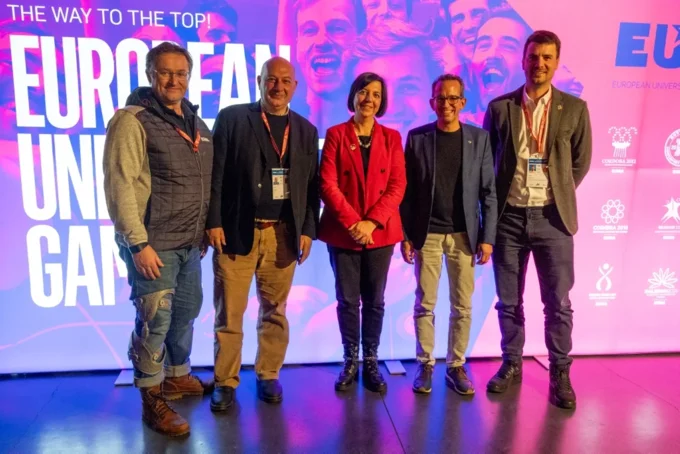
The conclusions of EUSA Winter Forum were made by Mr Milan Zvan, with the summary of the presentations and discussions.
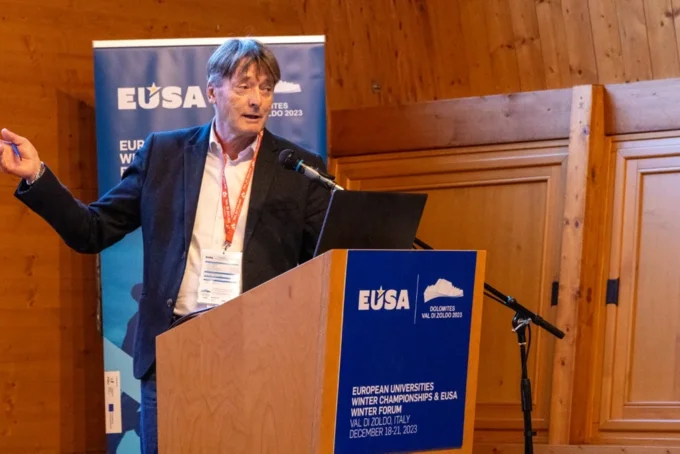
He pointed out that during the forum, participants had the chance to hear about different ways to impact sustainability through balancing environmental, social, and economic tools, as well as involving local communities and using educational best practices to teach people and make impactful events.
For more information, please see www.eusa.eu
